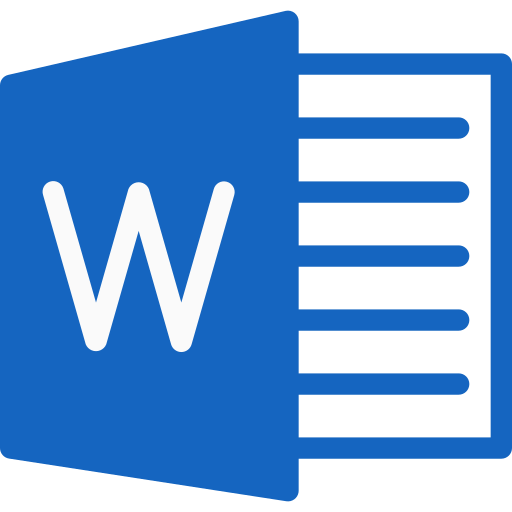Download Sample resume for military nurse template and edit the content in it with you career specifications

Do you know how to be a nurse and want to serve your country? Transitioning from the military to a civilian job can be difficult, but a well-written resume can make all the difference. In this piece, we’ll show you how to create a military nurse resume that showcases your unique skills, experience, and accomplishments. Whether you’re looking for a civilian hospital, VA medical center, or any other healthcare facility, this guide will help you create a resume that stands out to potential employers.
Introduction
As a military nurse, you have unique skills that combine excellent medical knowledge with the discipline and dedication of military service. Transitioning from the military to the private health care sector is exciting, but you need a well-written resume to show how qualified you are.
In the sections that follow, we’ll go over each part of your military nurse resume and provide helpful tips and examples to make sure yours stands out from the rest.
What it’s like to be a military nurse and what you need to do
Before we start writing your resume, let’s look at the most important skills and abilities that will make you a great military nurse. Some of these are:
- Knowledge of how to treat medical emergencies
- Ability to deal with difficult situations
- Strong ability to lead and work well with others
- Skill in organizing and evaluating people
- An in-depth understanding of how the military administers healthcare
- Patients and their families deserve compassion and understanding.
- Effective communication and problem solving skills
- Ability to adjust to various health care settings
- Keeping medical records and writing information is good
- Continuous dedication to career growth
How to write the perfect objective for a resume
The objective is the first thing people see on your resume. It tells them what you want to do with your job and shows your relevant skills. As a military nurse looking to work in the civilian world, your resume should aim to show how excited you are for the new job and how committed you are to providing good care. For example:
“Skilled military nurse looking for a challenging job in a civilian hospital. Using my excellent experience in emergency medical care and leadership skills to provide excellent care to patients and better assist the healthcare team.”
Experience in the workplace
In the professional experience area of your resume, you can talk about what you did and what you accomplished while you were in the military. Divide this section into two subsections. One should be about your experience in military medical facilities. And the other should be about any rotations you have done in civilian hospitals.
Medical Facilities for Military
In this section, write what you did, what you were responsible for, and what you accomplished. While you were in the military health care system. Focus on any special skills you’ve learned, such as treating trauma, helping to deal with casualties, or helping people after a disaster.
Hospital Shifts for Civilians
During your service, you may have the opportunity to work in a civilian hospital. Show how these experiences have enabled you to adapt to different health care settings and work well with civilian medical professionals.
Schooling and Credentials
In this section, tell us about your education and any important certifications. Include your nursing degree, any additional training you’ve received, and any other certifications that demonstrate what you do.
Honors and Achievements
Your hard work and dedication in service may have earned you awards and accolades. Mention any medals, commendations or other awards you received while in the military to show how well you did as a military nurse.
Job Specific Training
As a military nurse, you’ve probably received training that teaches you how to handle unusual scenarios. Tell me about other training you’ve received, such as courses on war casualties, certifications in critical care, or disaster response training.
Skills you need
You may have other useful skills to add to your resume in addition to your medical knowledge. These may include being able to speak a foreign language, having a certificate in leadership, or knowing how to use certain medical tools.
Associations and Memberships
Show that you care about your professional growth by listing any nursing organizations, health care associations, or veterans’ support groups that you belong to.
Useful Links
Your resume will look more credible if it has recommendations from past bosses or colleagues. Put “references available upon request” on your resume to show you’re willing to provide references when needed.
Tips and Don’ts for Formatting
Make sure your resume is good and easy to read. Use bullet points to make information easier to understand and avoid long lines. Use a professional font and don’t use too many colors or styles that are difficult to understand.
How to write a resume for a military nurse
- Keep it simple: Use simple, clear language to get your skills across.
- Pay attention to the reader: Showcase your skills and adventures in an interesting way.
- Use “I” or “me”: Action verbs make your resume more interesting and powerful.
- Emphasize what makes you different: Focus on what makes you different from other candidates, such as awards or specific training.
- Check carefully for errors: Check your resume for spelling and grammar mistakes to make sure it looks clean and professional.
For a military nurse to get a good job in the civilian healthcare field, they need to have strong resume. You can make a strong case for yourself if you talk about your unique skills, experiences, and accomplishments.
Don’t forget to change your resume for each job application and tailor it to the unique requirements of your desired job. With a well-organized and well-written resume. You’ll have a better chance of landing the job you want and staying true to your larger goal of providing great healthcare.
Frequently Asked Questions
Q: Can I send the same resume to all the jobs I want?
A: You can use a simple template, but it’s best to change your resume for each job application to highlight the most important skills and experiences.
Q: Should I put my time in the military on my resume?
A: Yes, mentioning how long you have been in the military can provide more information about your past and show how committed you are to the service.
Q: How can I show that I’m a good boss on my resume?
A: You can talk about times you’ve been in charge of a medical team during a crisis, or talk about any leadership training you’ve had.
Q: Do I always send a cover letter with my resume?
A: It’s best to include a cover letter because it allows you to provide more information about your background and show how excited you are about the job.
Q: What style should I use for my resume?
A: Save your resume in a standard file, such as a PDF, so it looks the same across all devices and operating systems.
